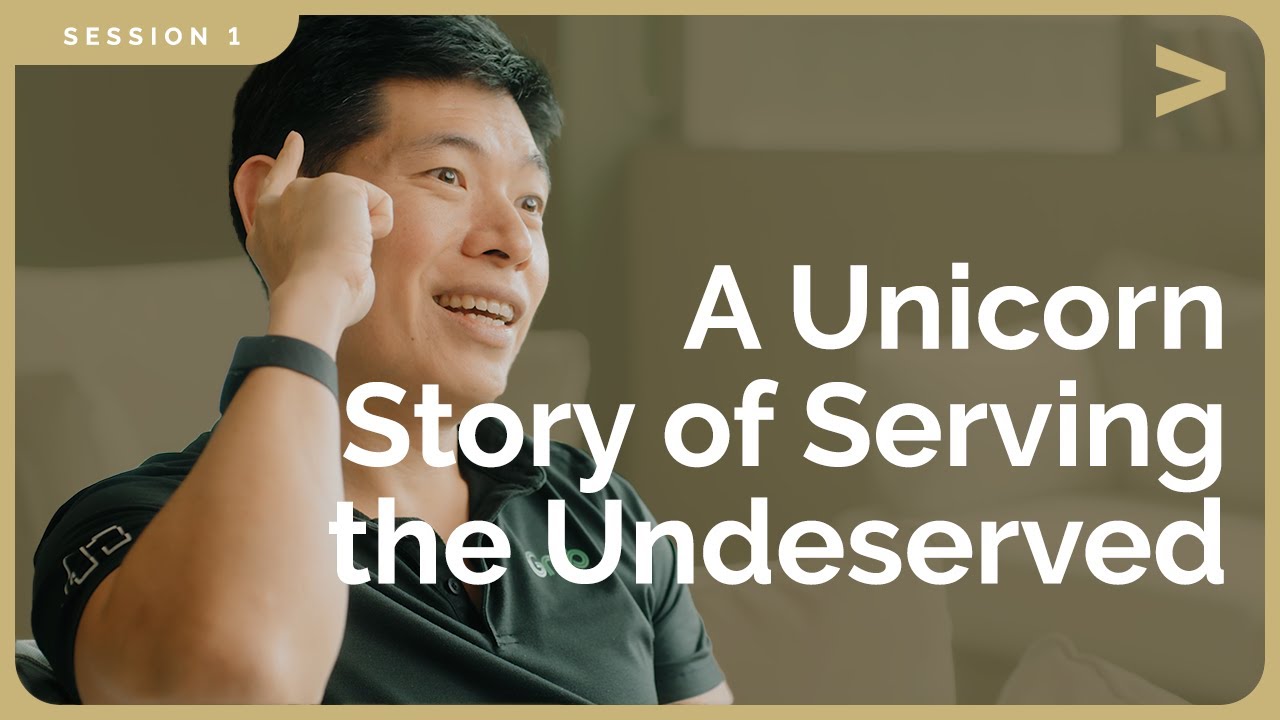Patrick Lencioni | The Motive, Session 1: Start with the Why
Summary
TLDRIn this insightful session, Paula Ferris and Patrick Lencioni discuss the vital importance of motives in leadership, especially for faith-driven entrepreneurs. They emphasize the distinction between being reward-centered and responsibility-centered, advocating for a leadership style rooted in service and stewardship. Lencioni outlines common pitfalls leaders face when motivated by personal gain, encouraging a focus on serving others and cultivating community. The series aims to connect entrepreneurs globally, fostering a supportive network that enriches both personal and professional journeys in alignment with Christ's teachings.
Takeaways
- 😀 Faith-driven entrepreneurship emphasizes the importance of aligning motives with a sense of responsibility rather than personal rewards.
- 😀 Many leaders pursue positions for the benefits they offer, which can lead to a misalignment of values and dissatisfaction.
- 😀 Effective leadership involves having difficult conversations and addressing issues directly for the benefit of others.
- 😀 Managing direct reports is essential; leaders should actively engage with their teams and support their development.
- 😀 Team building is a fundamental responsibility of leaders that cannot be delegated to others.
- 😀 Repetition is key in leadership; consistently communicating messages helps ensure clarity and understanding.
- 😀 Meetings are vital spaces for leadership; avoiding them can hinder organizational effectiveness.
- 😀 Leaders are called to serve others, with their primary motive being the well-being of their team and mission.
- 😀 The community aspect of faith-driven entrepreneurship provides support and connection among like-minded individuals.
- 😀 Embracing a servant leadership mindset is crucial for fulfilling the true purpose of leadership in a faith context.
Q & A
What is the primary focus of the 'Faith-Driven Entrepreneur' series?
-The series emphasizes understanding the true motives behind leadership and encourages entrepreneurs to align their work with their faith and purpose.
What common experience do many entrepreneurs face in their careers, according to Paula Ferris?
-Many entrepreneurs reach the top of their career ladder only to realize that their achievements do not fulfill them, often finding themselves in roles misaligned with their values.
How does Patrick Lencioni categorize the motives for leadership?
-Lencioni categorizes leadership motives into two types: reward-centered motives, which focus on personal gain, and responsibility-centered motives, which emphasize serving others.
What risks are associated with being a reward-centered leader?
-Reward-centered leaders may experience frustration and dissatisfaction, as true leadership often requires selflessness and accountability to others.
What are some responsibilities that leaders often abdicate when motivated by personal rewards?
-Leaders may abdicate responsibilities such as having difficult conversations, managing their direct reports, building their teams, repeating key messages, and running effective meetings.
Why is community important for faith-driven entrepreneurs?
-Community provides support, connection, and shared experiences, helping entrepreneurs feel less isolated in their journeys and reinforcing their shared values and missions.
What resources does Faith-Driven Entrepreneur offer to its members?
-Faith-Driven Entrepreneur offers a podcast, blog, app, books, and teaching series, as well as community groups for ongoing support and connection.
What does Lencioni suggest is necessary for effective leadership?
-Effective leadership requires being motivated by a sense of responsibility to serve others and fulfilling the needs of one's team and organization.
How can entrepreneurs participate in Faith-Driven Entrepreneur groups?
-Entrepreneurs can join eight-week foundation groups or ongoing meetings, either online or in person, at no cost to foster relationships with like-minded individuals.
What key lesson does the series convey about identity and work?
-The series conveys that one's identity should be rooted in faith and not in professional accomplishments, highlighting the importance of serving God and others in the entrepreneurial journey.
Outlines

此内容仅限付费用户访问。 请升级后访问。
立即升级Mindmap

此内容仅限付费用户访问。 请升级后访问。
立即升级Keywords

此内容仅限付费用户访问。 请升级后访问。
立即升级Highlights

此内容仅限付费用户访问。 请升级后访问。
立即升级Transcripts

此内容仅限付费用户访问。 请升级后访问。
立即升级浏览更多相关视频

Patrick Lencioni | The Motive, Session 2: At What Cost and Ship of Fools

Session 2 - God Owns My Business

Excellence Matters | Serving 9 Million Entrepreneurs | Anthony Tan

Victory Leadership Podcast - Leadership and Faith

Cybersecurity with Patrick Kelley | After 40 Podcast with Dr. Deborah Heiser

BELAJAR DARI PENGALAMANA TP RACHMAT 4 HAL UNTUK BISNIS BERHASIL - BE A BILLIONAIRE
5.0 / 5 (0 votes)
